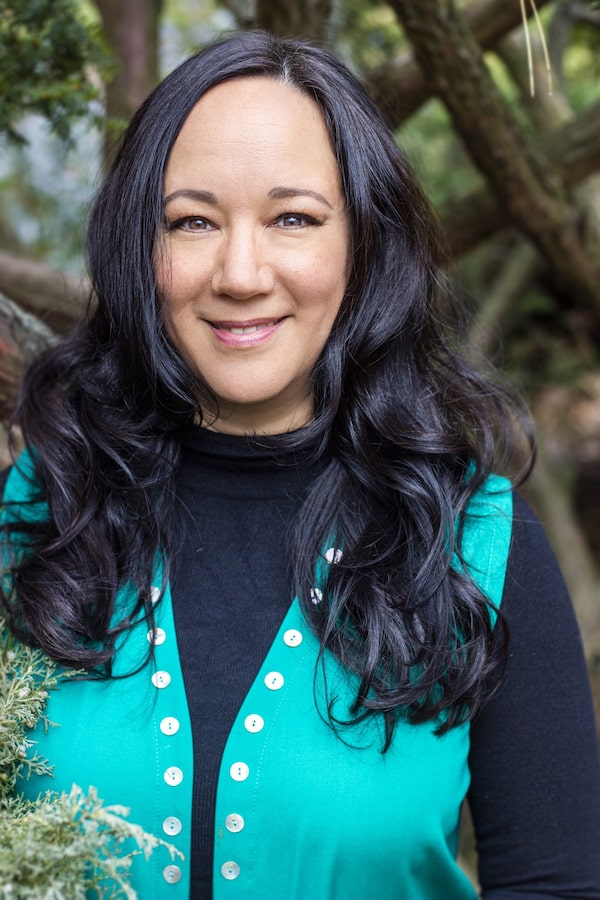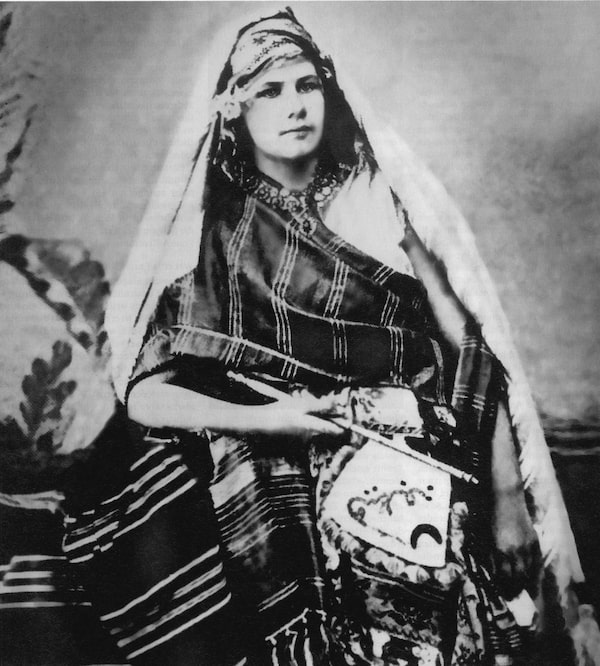
City Opera Vancouver, led by artistic director Gordon Gerrard, will present the opera at the end of February with mezzo-soprano Marion Newman, pictured, of the Kwagiulth and Stó:lō First Nations, singing the lead. PHOTO BY HOWARD J. DAVISHandout
Opera is filled with intriguing heroines, but perhaps none as fascinating as the writer and explorer Isabelle Eberhardt, a woman who truly lived fast and died young.
Born in Geneva in 1877, the illegitimate daughter of Russian-Armenian parents, Eberhardt first published in a French journal under a male pseudonym. She eventually moved to Algeria, where she dressed as a man and converted to Islam, specifically a sect of Sufism dedicated to alleviating poverty.
The polyglot adventurer worked as a war correspondent and penned one novel, Vagabond, published posthumously in 1922. In a notebook she wrote of her feelings toward the liberation she never found in Europe, that “vagrancy is deliverance, and life on the open road is the essence of freedom.”
Staunchly opposed to France’s colonial presence in North Africa, Eberhardt survived an assassination attempt in 1901 before perishing in a flash flood three years later. Her life is the basis of the 2012 chamber opera Songs from the Uproar: The Lives and Deaths of Isabelle Eberhardt, with music by American Missy Mazzoli, who also co-wrote the libretto with Canadian Royce Vavrek.
City Opera Vancouver, led by artistic director Gordon Gerrard, will present the opera at the end of February with mezzo-soprano Marion Newman, of the Kwagiulth and Stó:lō First Nations, singing the lead. The artist, who also hosts CBC Radio’s Saturday Afternoon at the Opera, recently shared thoughts on preparation, inspiration and whether she feels like an opera ambassador.
How did you first learn about Isabelle Eberhardt?
Gord Gerrard is a friend, and he’s the one who found this opera. It was his idea to dig into the repertoire rather than trying to reduce large works that really do belong in the bigger houses. Plus, there’s a lot of chamber opera we don’t hear often, if ever. He found this piece and he kept sending me stuff about Eberhardt and that’s how my learning began, about a year ago.
To what extent do you think chamber operas like this are a possible way forward in terms of attracting new audiences?
We think opera is so huge, but it’s really multifaceted. There are many ways to tell stories through opera: acoustics, voice, instruments. In this piece there’s electronic stuff also. With modern opera, we can stretch those realities. Yes, opera has become grand but it’s not the only way.
How much do you think this format is suited to telling a story as big as Eberhardt’s?
I think because of the angle taken here – at the moment of her death – it means a focus on her interior world: her experiences, her feelings, what hurts are still left, the joys. It is a very private moment. If we were doing her life as she’s living it, yes, that’s incredibly big, a grand opera. It’s hard to believe she was real, she’s just so fascinating.

Writer and explorer Isabelle Eberhardt was a woman who truly lived fast and died young.Handout
What’s that like for you as a performer?
Of course you draw on your own experiences, with various elements from life and consider its various pieces: what heartbreak is, what joy is, how it feels to be drunk – Isabelle loved to party. I have all of these experiences in my life as well. But the music really informs everything.
What kind of musical preparation has been involved?
I studied the score for about a month, working out the rhythms and how they fit with the spoken word. I also listened to the recording while travelling to get used to the watery-ness of the musical writing, its echoing quality, the working-in of piano parts and voices. Right now I’m in repeat mode, singing it out fully a couple of hours every day while walking or doing household chores, so there’s movement involved in my memory as well.
What impact do you see smaller companies having on the wider operatic community?
I think smaller companies can be brave to do things in a way larger companies, who have larger budgets and more people relying on them, don’t have the flexibility to do. And it is perhaps the smaller companies who have been feeding those ideas to larger ones for a while now. For example, Pacific Opera Victoria always programs something unexpected as part of a season. They have the Carmen/Bohème regular operatic repertoire, and they have a second stage where they do a lot of different stories. I think it is the smaller companies who lead conversations in a new direction. They often represent younger audiences and those who aren’t seeing what they want to see on larger stages.
Do you feel like an ambassador for opera?
I haven’t thought about that word, but I suppose yes – and that’s because other people are lifting me up into those positions where I’m being seen. I take that honour seriously. It’s you representing your community, wherever you go.
What should people nervous about new opera know?
I understand new works can be prickly for first-time listeners, especially for people who prefer Puccini or Verdi. But for younger people coming to the opera, and older people looking for ways to access what’s going on in a world that doesn’t always make sense to them, this opera is maybe a good way to start those conversations.
Keep up to date with the weekly Nestruck on Theatre newsletter. Sign up today.